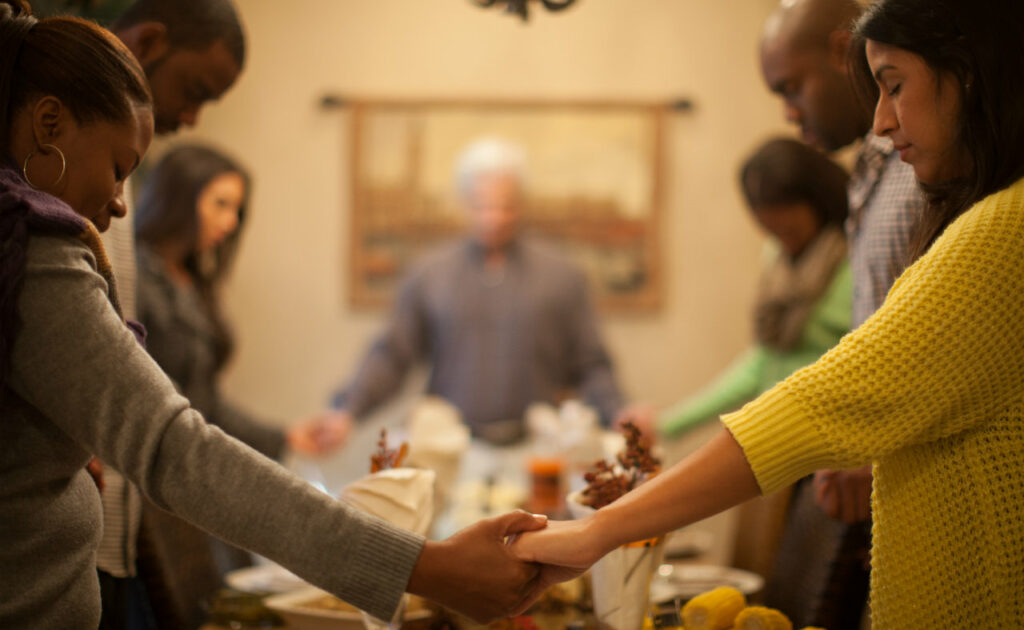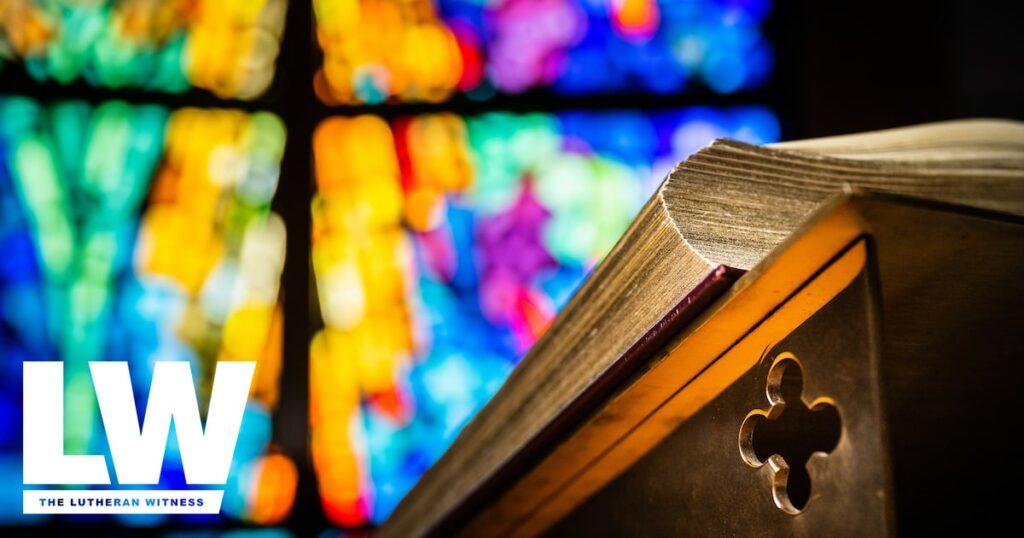by Matthew C. Harrison
What is the good life?
Is it the enjoyment of things? Is it the absence of suffering? Is it possession of wealth? Is it living a moral life? A virtuous life? A religious life?
Every serious or armchair philosopher in history has had an answer to the question. The Bible’s answer to the question is deep and multifaceted. I think first of John’s Gospel. John tells us that everything was made through the pre-incarnate Word, and that “in him was life, and the life was the light of men” (John 1:3–4).
The very meaning of life is found in the source of life. How do we know this source of life? In Him is the “light of men.” John’s Gospel tells us John the Baptizer witnessed to the light: “Behold the Lamb of God, who takes away the sin of the world” (1:29). John’s witness is recorded in the inspired text of Holy Scripture for all time. Jesus said of all the Old Testament Scriptures: “These are they which testify of me” (5:39). Knowledge of the good life begins with knowledge of the source of life, Christ. And that knowledge is found in the sacred Scriptures.
The “good life” — yes, the very best life — is lived knowing our Creator. The Father created all things through the Son. In the face of the light of truth, another truth about us becomes manifest. We are sinners. The greatest impediment to life itself, let alone the “good life,” is found in ourselves. When the bright holiness of God, Christ or even angels confronts men in the Scriptures, the universal refrain is, “Depart from me, Lord, for I am a sinful man!” (Luke 5:8). “Woe is me! For I am lost; for I am a man of unclean lips …” (Is. 6:5). Humility is certainly a universally recognized virtue, but repentance is a profound humility which recognizes one’s complete unworthiness in the sight of God and His perfect holiness.
How bitter life is when humans are forced to carry on a charade of self-superiority over others! What damage is done to relationships! How sordid and sour the life of the “superior one”! How joyless the lives inflicted by such “saints”! The best life recognizes the finger of Nathan, John the Baptizer, even Jesus, pointing and saying, “You are the man!” (2 Sam. 12:7). “Who warned you to flee from the wrath to come?” (Luke 3:7).
Zacchaeus, I suppose, was convinced that he was pursuing the path to the good life. But in his encounter with Jesus, he repented. He believed. And he acted to correct what he had inflicted on others. Zacchaeus “hurried and came down and received [Jesus] joyfully” (Luke 19:6). The good life is set just about as soon as one realizes that “Jesus receives tax collectors and sinners and eats with them,” and I’m one of those.
The conscience cannot be at peace with any “good life” that exists apart from Christ. The conscience can be seared, it can be muffled, it can be ignored, perhaps for a long time. But the troubled conscience, carrying sin — even while denying its own sin — will manifest itself in myriad ways of discontent, selfishness, greed, hatred, jealousy, anxiety and the like.
The Bible (and the Lutheran Confessions also explicitly claim this for themselves) is nothing if not a handbook of consolation for the troubled conscience. “Come to me all you who are heavy laden, and I will give you rest” (Matt. 11:28). “I came not to call the righteous, but sinners” (Matt. 9:13). “At the top of his voice, Paul cries out that sins are freely forgiven for Christ’s sake” (Apology to the Augsburg Confession, Article XX, paragraph 87).
The “good life,” the greatest life, is life reconciled to God our Maker and to our fellow human beings. The greatest life is living in love, forgiveness, and yes, great joy with those whom God has placed all about us in our sacred vocations. When trials come and would threaten the “good life,” we find this ironic twist to be true: “When I am weak, then I am strong” (2 COR. 12:10). Our trials bring the vintage to fruition. How profound the forgiveness, the love, the sorrow, the joy in the midst of the challenges of this life! They cause us to look forward to the “good life” — even better, our life eternally with Christ.
We are freed in Christ, and the Bible shows us just how fabulous our freedom is to enjoy faith, spouse, family, vocations, work, food, drink, neighbors, Christ, forgiveness, Baptism, Absolution, Supper, friends — indeed, all creation. What a wonderful way to live!
The Rev. Dr. Matthew C. Harrison is president of The Lutheran Church—Missouri Synod.





